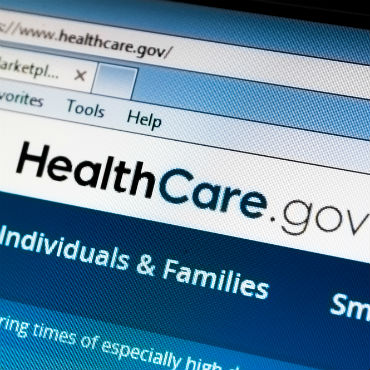GAO finds holes in ACA data verification
The Government Accountability Office managed to push bogus applications past Affordable Care Act data verification requirements to get approval for health insurance coverage.

Although the Affordable Care Act requires health insurance marketplaces to verify applicants' information to determine eligibility for enrollment, there are some loopholes.
In a new report, the Government Accountability Office found some of them.
Steps to verify eligibility for income-based subsidies were particularly vulnerable, GAO said. That process involves validating an applicant's Social Security number, citizenship or immigration status and household income. The twist GAO discovered is that the law requires marketplaces to grant eligibility while inconsistencies between the information provided by the applicant and government sources are resolved.
Previous GAO studies of the 2014 and 2015 coverage years also found that the marketplaces' eligibility determination and enrollment processes were vulnerable to fraud.
In its 2016 study, GAO said marketplaces initially approved coverage and subsidies for auditors' 15 bogus applications. Three applicants could not get a payout because their initial payments were not successfully processed.
GAO's finding on the remaining applications, however, was not reassuring. Four applications used the same fictitious identities that were used to get subsidies in 2014, and though GAO said none of the 2014 fictitious applicants had filed a 2014 tax return, they were all approved for 2016 subsidies. 2016 was the first year in which previous recipients had to verify that they had filed tax returns in order to retain benefits.
According to GAO, marketplace officials told them they took the applicants' word that they had filed tax returns even if IRS information indicated that they had not. The officials attributed the discrepancy to the lagtime between when taxes are filed and when they turn up in IRS systems.
For eight applications, GAO said it used new fabricated identities to test the verification process, and every one of them was approved for coverage.
GAO submitted eight recommendations to the Centers for Medicare and Medicaid Services to strengthen oversight of the health insurance marketplaces that are in the process of being implemented.
In reply comments, Department of Health and Human Services officials wrote that they use fraud detection analytics tools and rely on a team of more than 200 investigators to root out fraud. Additionally, scammers are subject to fines and loss of coverage.
They also said they provide people with real-time electronic eligibility verification using the Federal Data Services Hub, which provides a secure connection between the marketplaces and federal, state and private databases. Those databases are maintained by the IRS, Department of Homeland Security, Equifax, Department of Veterans Affairs, Medicare, Medicaid, Tricare and others.
Rep. Fred Upton (R-Mich.), chairman of the House Energy and Commerce Committee, said the report shows "that there is still tremendous weakness in how the federal marketplace operates and immediate action must be taken to ensure all avenues for fraud are impossible."





